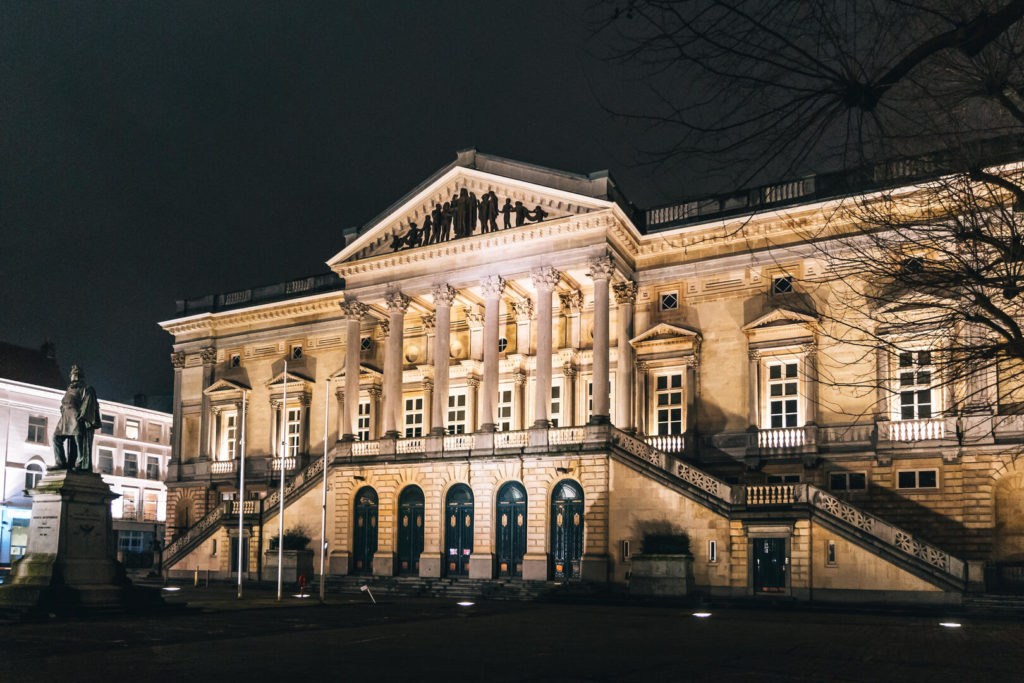Following the example of German cities such as Berlin and Hanover, the Flemish municipality of Genk is lowering the thermostat of its Olympic swimming pool and the public showers to reduce energy consumption. But not all municipalities are as eager to take measures.
While Germany is unsure of whether or not there will be enough energy this winter, Belgium does not have to worry about that, according to Energy Minister Tinne Van der Straeten. Still, energy prices continue to soar everywhere.
The Genk mayor Wim Dries, who is also the chair of the Flemish Association of Cities and Municipalities (VVSG), has already lowered the temperature of the public showers in his city by one degree and is looking into the possibility of lowering it still further to 36°C.
Additionally, the temperature of the swimming pool water has been lowered from 29 to 28.5 degrees, and it may even be possible to lower that to 28 degrees. How much money this will save is still being investigated; while Dries stated that he is not doing it primarily for financial reasons, he did admit that the rising prices "continue to hurt."
Small short-term changes
In a winter month, the gas bill for Genk's Olympic pool quickly ran up to €80,000 and that will probably be many times higher now. "Like most municipalities, we are working on sustainability in the long term, but we want to set a good example by making small changes in the short term," he told De Standaard, adding that the city is also looking into whether the heating in the city offices can be lowered.
In Hasselt, Mayor Steven Vandeput has "no intention" of taking any "hasty" measures: "If the temperature of the swimming pool can be lowered by one degree, why was that not done three years ago?"
However, he said that while he is not planning to turn down the heating in Hasselt in the short term, he emphasised that the city is steadily pursuing its long-term plans. "Our new municipal offices will be state of the art in terms of energy efficiency."
In the coastal municipality of Ostend, mayor Bart Tommelein admitted that he isn't particularly eager to lower the temperature in the swimming pool or the city offices, or to (temporarily) turn off the city lights: "The administration is looking into where we can save energy, but I am not in favour of symbolic measures. The additional cost of energy will run into millions, and I am not about to take a measure that will only save a few thousand euros."
Long-term changes
"Everything must be proportional and the other consequences must be properly mapped out," said Tommelein. "If turning off the streetlights leads to a greater sense of insecurity and more police deployment, it does not help either."
The city of Antwerp does not want to take any ad hoc measures either, said Johan Vermant, spokesperson for mayor Bart De Wever. "Those who leave their residents out in the cold will never win public support for their aims."
"In Antwerp, we are working on a very specific plan to make our urban energy use more efficient and sustainable, including smart lighting, heat networks and alternative energy sources. In the long run, this will also benefit the city."
In Ghent however, an action plan for managing the lighting for public buildings and monuments is in the making and should be ready by autumn.
Related News
- Cold showers, unheated buildings: How Germany will cut gas consumption
- Russian gas crisis forces Hanover to take cold showers
- Berlin unplugs major monuments in bid to save energy
"In 2021, we spent €3.25 million on public lighting. That will be even more now," said Ghent city councillor for Public Space Filip Watteeuw. "I do not immediately see the biggest savings in the lighting of monuments, because most of it is fairly new, with a lot of LED lights."
Ghent has switched off the lighting of monuments at midnight for years but switching off the street lights for an hour when there is nearly no traffic could mean an annual saving of €400,000. "But that of course requires consultation with the police and the fire brigade."
Watteeuw also pointed out that it is not easy to switch off certain lights or only switch them off in certain streets, as the network is not designed for that.

